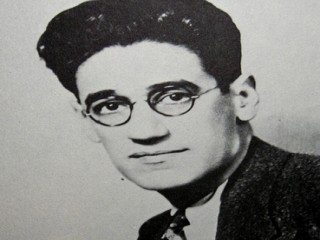
George S. Kaufman biography
Date of birth : 1889-11-16
Date of death : 1961-06-02
Birthplace : Pittsburgh, Pennsylvania, U.S.
Nationality : American
Category : Famous Figures
Last modified : 2011-05-12
Credited as : Playwright, Pulitzer Prize-winner,
American playwright George S. Kaufman collaborated on a great number of successful plays that merged theatricality with satiric comedy.
George S. Kaufman was born in Pittsburgh, Pa., on Nov. 16, 1889. After attending public schools in Pittsburgh and Paterson, N.J., he studied law briefly. He worked as a clerk, stenographer, and ribbon salesman before he started contributing humorous verses to the newspaper column of Franklin P. Adams in 1908. With Adams's help, Kaufman joined the Washington Times in 1912. After working on the New York Evening Mail and the New York Tribune, he went to the New York Times in 1917 and remained as drama editor until 1930. In 1917 he married Beatrice Bakrow.
Tense and tireless, caustic and witty, Kaufman was somewhat eccentric in his personal mannerisms. His first successful play, Dulcy (1921), written with Marc Connelly, is a satire of a vapid woman who is wrecking her bright husband's plans. To the Ladies (1922) reverses this, as a bright woman saves her vapid husband's plans. For 20 years one Kaufman collaboration, and sometimes several, appeared annually on Broadway.
Among the best examples of Kaufman's satiric comedy were two collaborations with Edna Ferber: The Royal Family (1928) focuses on the American theater's first family, the Barrymores, and Dinner at Eight (1932) deals with social climbing. His musical satire, the Pulitzer Prize-winning Of Thee I Sing (1931), written with Morrie Ryskind, hilariously indicts the chicanery of politicians. He collaborated with Ryskind again on the musical Let 'Em Eat Cake (1933). In First Lady (1935) he again derided politicians.
Sometimes Kaufman succeeded with sheer theatricality, as in another Pulitzer Prize-winner, You Can't Take It with You (1936), written with Moss Hart. The classic The Man Who Came to Dinner (1939) was also written with Hart. Working with John P. Marquand on an adaptation of the latter's novel The Late George Apley (1944), Kaufman tossed barbs at the proper Bostonians.
After the death of his first wife in 1945, Kaufman married actress Leueen McGrath, whom he divorced in 1957; they wrote The Small Hours (1951). After World War II he worked increasingly as a play doctor. His knowledge of play structure was highly valued, and his plays rarely failed. He died on June 2, 1961, in New York City.
















